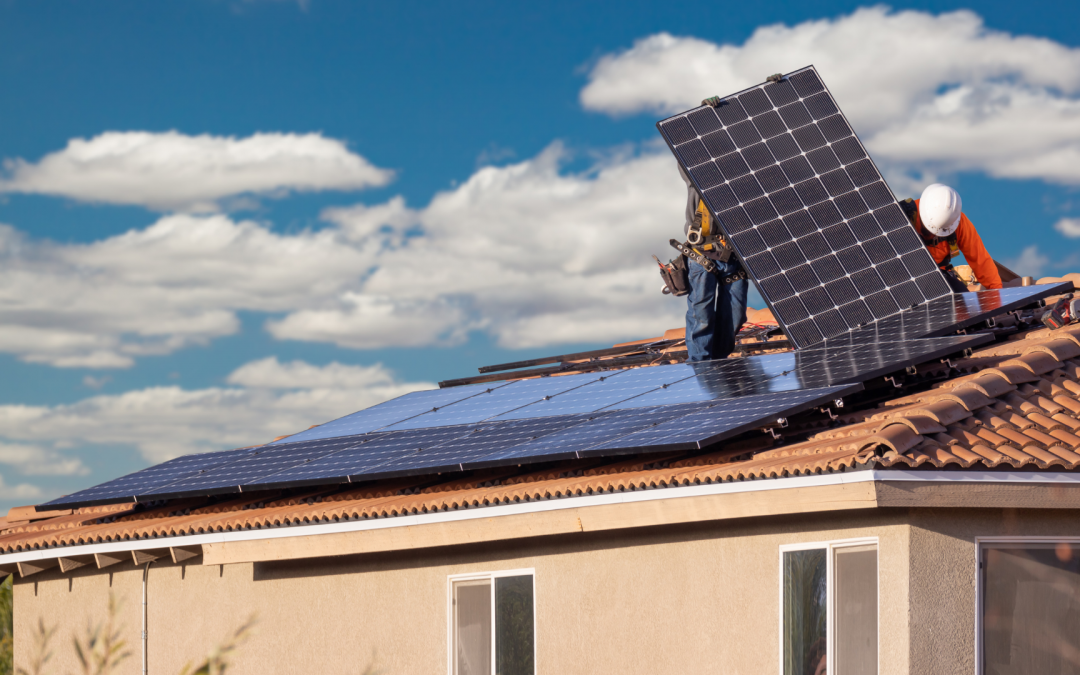Switching to solar energy is one of the smartest investments homeowners can make, not just for sustainability but also for long-term financial returns. But how much can you really save with solar panels, and when will your investment pay off? Let’s break down the factors that influence solar panels ROI and how you can maximize your savings over time.
Understanding Solar Panel ROI
Return on investment (ROI) for solar panels refers to the financial benefits you gain compared to the initial installation costs. Typically, homeowners see returns through reduced energy bills, tax credits, and increased property value. On average, solar systems pay for themselves within 6 to 10 years, but savings continue to accumulate for decades.
Factors That Influence Solar Panel ROI
- Energy Savings: Solar panels reduce or even eliminate your electricity bills. The exact savings depend on your location, system size, and energy usage. For example, in states with higher electricity rates, the monthly savings are more significant, accelerating your ROI.
- Tax Credits and Incentives: The federal solar Investment Tax Credit (ITC) allows you to deduct 30% of your solar installation costs from your taxes. Additionally, many states offer rebates, net metering, and other incentives that lower upfront costs and boost long-term returns.
- Net Metering Benefits: Net metering programs let you sell excess energy back to the grid, earning credits on your utility bill. This can significantly offset costs, especially during sunny months when your panels generate more electricity than you consume.
- Property Value Increase: Solar installations can raise your home’s value. Studies show that homes with solar panels sell faster and at higher prices, as buyers are attracted to lower energy costs and sustainable features.
- System Durability and Maintenance: Solar panels are built to last 25-30 years with minimal maintenance. The longer your system operates efficiently, the greater your overall savings.
How to Calculate Your Solar Panel ROI
To estimate your ROI, consider these key components:
- Installation Cost: The upfront cost, including panels, inverters, mounting hardware, and labor.
- Annual Energy Savings: Multiply your annual electricity bill savings by the expected lifespan of your system.
- Incentives & Rebates: Factor in federal, state, and local incentives to lower your initial investment.
- Home Value Increase: Add the estimated increase in property value.
The formula looks like this:
ROI (%) = (Total Savings – Total Costs) ÷ Total Costs × 100
Example: If your solar system costs $15,000 after incentives, saves you $1,500 annually, and adds $10,000 to your home value, your ROI over 25 years would be substantial.
Real-World Savings Over Time
Let’s say you live in Maryland, where electricity rates are higher than the national average. If your monthly bill is $150 and solar panels cut it to $20, that’s $1,560 in annual savings. Over 25 years, you’d save $39,000 — more than double the system’s initial cost.
With additional benefits like SRECs (Solar Renewable Energy Credits) and net metering, your payback period shortens, and your profits grow even faster.
Maximizing Your Solar ROI
- Choose a Reputable Installer: Partnering with an experienced, local solar provider ensures proper installation and system optimization.
- Take Advantage of Incentives: Stay informed about available tax credits, rebates, and utility programs to reduce upfront costs.
- Monitor System Performance: Use solar monitoring tools to track energy production and quickly address any maintenance issues.
- Optimize Energy Usage: Implement energy-efficient practices at home to further reduce electricity consumption and increase net savings.
Is Solar Worth the Investment?
For most homeowners, the answer is a resounding yes. Solar panels offer reliable, long-term returns, protect against rising energy costs, and contribute to a cleaner environment. While the upfront cost may seem significant, the combination of energy savings, incentives, and property value appreciation makes solar an incredibly worthwhile investment.
If you’re ready to calculate your potential savings and explore solar options, reach out to a trusted solar provider. By going solar, you’re not just powering your home — you’re investing in a brighter, more sustainable future.
Want to learn more about the financial benefits of solar? Contact Renewable Energy Corporation for a personalized solar assessment and discover how much you can save over time!


Recent Comments